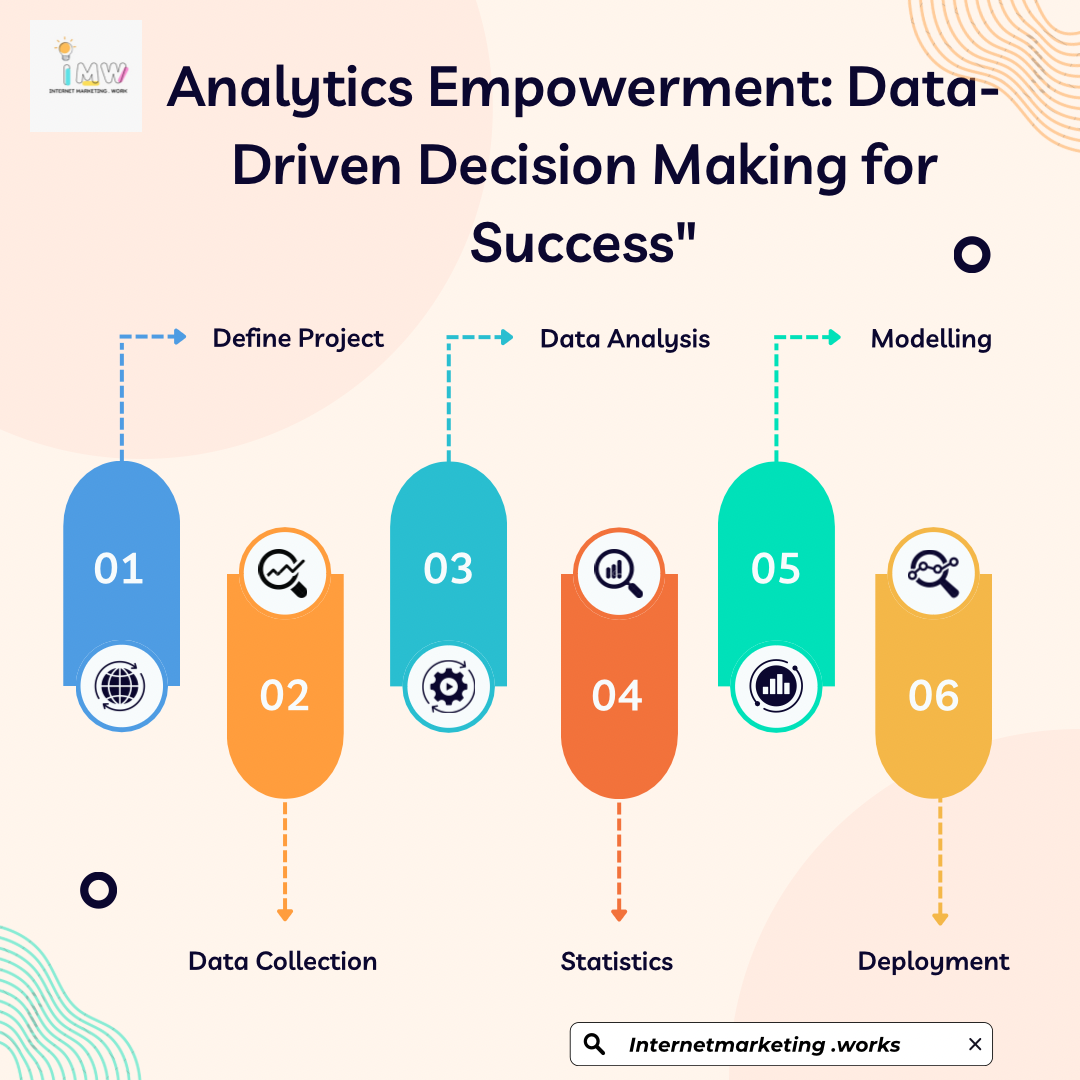In today’s digital landscape, businesses have access to an unprecedented amount of data that can be leveraged to drive informed decision-making and achieve strategic objectives. From website analytics to customer behavior data, the insights gleaned from data analytics can empower organizations to optimize processes, enhance performance, and stay ahead of the competition. In this comprehensive guide, we explore the principles of data-driven decision-making and how businesses can harness analytics for success.

Understanding Data-Driven Decision Making
Data-driven decision-making is the process of using data analysis and interpretation to inform business decisions and strategies. By relying on data rather than intuition or gut feelings, organizations can make more accurate, objective, and evidence-based decisions that lead to better outcomes. Data-driven decision-making involves collecting, analyzing, and interpreting data from various sources to gain insights into business performance, customer behavior, market trends, and more.
The Benefits of Data-Driven Decision Making
There are several key benefits to adopting a data-driven approach to decision-making:
- Improved Accuracy: Data-driven decisions are based on empirical evidence rather than guesswork, leading to more accurate outcomes.
- Increased Efficiency: By analyzing data, organizations can identify inefficiencies and streamline processes to improve efficiency and productivity.
- Enhanced Performance: Data-driven insights enable organizations to optimize performance, identify opportunities for growth, and address potential challenges.
- Better Customer Understanding: Data analytics allows organizations to gain a deeper understanding of customer preferences, behavior, and needs, leading to more targeted and effective marketing strategies.
- Competitive Advantage: Organizations that leverage data effectively gain a competitive edge by identifying market trends, predicting customer behavior, and staying ahead of competitors.
Key Principles of Data-Driven Decision Making
To effectively harness analytics for success, organizations should adhere to several key principles:
- Define Clear Objectives: Clearly define the objectives and goals of data-driven initiatives to ensure alignment with business priorities.
- Collect Relevant Data: Gather data from various sources, including internal systems, customer interactions, and external market research, to provide a comprehensive view of performance and trends.
- Analyze and Interpret Data: Use analytics tools and techniques to analyze and interpret data, uncovering patterns, trends, and insights that inform decision-making.
- Incorporate Human Expertise: While data analytics is essential, it’s important to combine quantitative insights with qualitative expertise to make informed decisions that consider both data-driven insights and human judgment.
- Iterate and Improve: Data-driven decision-making is an iterative process. Continuously monitor performance, refine strategies, and adapt based on new data and insights to drive ongoing improvement and success.
Harnessing Analytics for Business Success
Businesses can leverage analytics across various areas to drive success:
- Marketing Optimization: Use data analytics to measure the effectiveness of marketing campaigns, identify high-performing channels, and target audiences more effectively.
- Customer Insights: Analyze customer data to understand preferences, behavior patterns, and buying habits, enabling personalized marketing and customer service.
- Operations Improvement: Utilize data analytics to optimize operations, identify inefficiencies, and streamline processes to improve productivity and reduce costs.
- Risk Management: Use predictive analytics to identify potential risks and opportunities, enabling proactive risk management and strategic decision-making.
- Product Development: Gather feedback and insights from customer data to inform product development, identify new opportunities, and improve product offerings.
Overcoming Challenges in Data-Driven Decision Making
While data-driven decision-making offers significant benefits, there are challenges organizations may encounter:
- Data Quality: Ensuring data accuracy, completeness, and reliability is essential for making informed decisions.
- Data Integration: Integrating data from disparate sources can be complex and challenging, requiring robust data management systems and processes.
- Skills Gap: Organizations may lack the necessary skills and expertise to effectively analyze and interpret data, requiring investment in training and development.
- Privacy and Security: Protecting customer data and ensuring compliance with privacy regulations is paramount to maintaining trust and integrity.
- Cultural Shift: Embracing a data-driven culture requires buy-in from stakeholders at all levels of the organization, along with a willingness to adapt to new ways of working.
Conclusion: The Power of Data-Driven Decision Making
In conclusion, data-driven decision-making is a powerful approach that empowers organizations to leverage data and analytics to drive success. By adhering to key principles, harnessing analytics across various areas of the business, and overcoming challenges, organizations can unlock the full potential of data to optimize performance, enhance customer experiences, and achieve strategic objectives. Embracing a data-driven culture and making informed decisions based on evidence and insights will position organizations for long-term success in today’s data-driven world.


